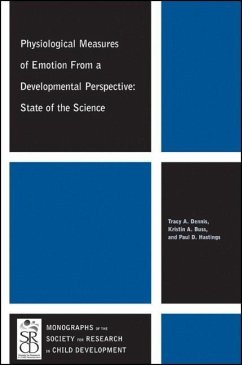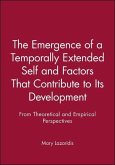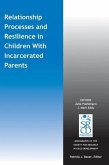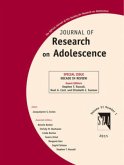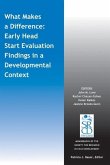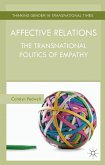In the past decade, there has been a dramatic growth in research examining the development of emotion from a physiological perspective. However, this widespread use of physiological measures to study emotional development coexists with relatively few guiding principles, thus reducing opportunities to move the field forward in innovative ways. The goal of this monograph is to present the state of the
science on the physiology of emotion from a developmental perspective in order to take stock of the knowledge base at this historical moment in time and to cultivate greater integration
and coordination in the field as a whole. The authors of the 13 chapters comprising this monograph provide brief and focused essays that emphasize 5 core themes: the time course of emotion, the context of physiological measurement, the nature of developing physiological and behavioral systems,
the specificity of associations between physiological measures and distinct aspects of emotion, and coordination among multiple physiological systems. This monograph has four parts. Part 1 describes integrative measurement approaches to the study of emotion and physiology, including measurement
of multiple biological systems and a focus on individual differences in the links between physiology and emotion. Part 2 emphasizes socialization and contextual and environmental factors that influence the physiology of emotion. Part 3 reviews maladaptive physiological processes that underlie or influence
affective disruptions and affective psychopathology. Part 4 describes overarching issues in the study of physiology and emotional development, articulating measurement guidelines and cutting-edge methods and statistical techniques. The work presented here represents the current state of the field,
as well as exciting new directions that have the potential to revolutionize our understanding of emotional well-being, risk, and psychopathology. Taken together these 13 essays provide an innovative view on the psychophysiology of emotion, emotional well-being, and affective psychopathology from a developmental perspective.
science on the physiology of emotion from a developmental perspective in order to take stock of the knowledge base at this historical moment in time and to cultivate greater integration
and coordination in the field as a whole. The authors of the 13 chapters comprising this monograph provide brief and focused essays that emphasize 5 core themes: the time course of emotion, the context of physiological measurement, the nature of developing physiological and behavioral systems,
the specificity of associations between physiological measures and distinct aspects of emotion, and coordination among multiple physiological systems. This monograph has four parts. Part 1 describes integrative measurement approaches to the study of emotion and physiology, including measurement
of multiple biological systems and a focus on individual differences in the links between physiology and emotion. Part 2 emphasizes socialization and contextual and environmental factors that influence the physiology of emotion. Part 3 reviews maladaptive physiological processes that underlie or influence
affective disruptions and affective psychopathology. Part 4 describes overarching issues in the study of physiology and emotional development, articulating measurement guidelines and cutting-edge methods and statistical techniques. The work presented here represents the current state of the field,
as well as exciting new directions that have the potential to revolutionize our understanding of emotional well-being, risk, and psychopathology. Taken together these 13 essays provide an innovative view on the psychophysiology of emotion, emotional well-being, and affective psychopathology from a developmental perspective.

